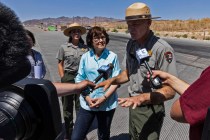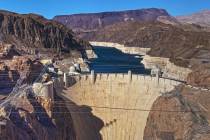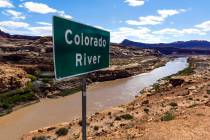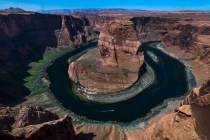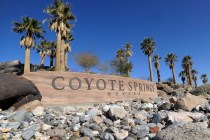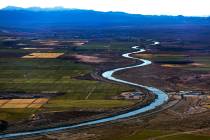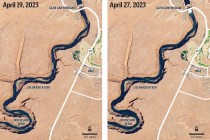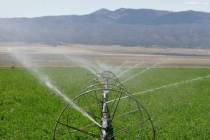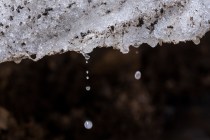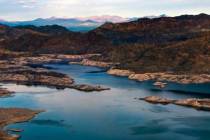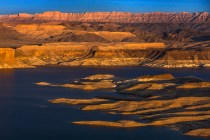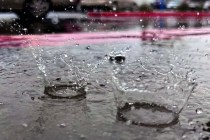Nevada Sen. Jacky Rosen said Lake Mead National Recreation Area will receive the funding to address the effects that long-term drought have had on the reservoir.
Colton Lochhead

Colton Lochhead covers pot and politics for the Review-Journal, where he started as an intern covering crime and breaking news in 2012. Raised in Las Vegas, the life-long desert rat graduated from Bonanza High School before earning his journalism degree from the University of Nevada, Las Vegas.
A bill that would give the SNWA the power to limit water use in single-family homes in the Las Vegas Valley was approved by the state Senate.
As much as one-third of Nevada’s normal share of the Colorado River would stay in Lake Mead, but officials say Las Vegas has been getting ready for this for years.
Nevada, California and Arizona have reached agreement on a plan to dramatically reduce water use along the Colorado River.
A bill that advocates pitched as a major step toward fixing Nevada’s growing groundwater problem was all but dead in the state Legislature on Friday.
The budget includes nearly $400 million for major construction projects across the valley aimed at improving the resiliency and capacity of the valley’s water system.
If the bill were to become law, Nevada would be the first state to give a water agency the power to cap the amount of water that flows into individual homes.
A torrent of water was released from Glen Canyon Dam last month as a way of shoring up the sandbars and beaches along the Colorado River.
State lawmakers are expected to heavily amend a water conservation bill that irked septic tank owners in the Las Vegas Valley.
Some Las Vegas Valley residents are pushing back against a proposal that would force them to dump their septic tanks and tap into the region’s municipal sewer system.
Officials say more time is needed to review the controversial plan to pump groundwater from rural western Utah valleys.
Experts are not expecting the near-record snowpack on Mount Charleston to pose any major flood problems as it melts.
The Nevada Assembly voted 30-12 in favor of a wide-ranging water conservation bill that could lead to caps on residential water use in Las Vegas.
After dropping more than 50 feet since 2000, latest forecasts show Lake Mead rising by roughly 22 feet by the end of the year.
The U.S. Drought Monitor says storms dropped so much water this winter that less than one-quarter of Nevada remains in drought.








